Blog
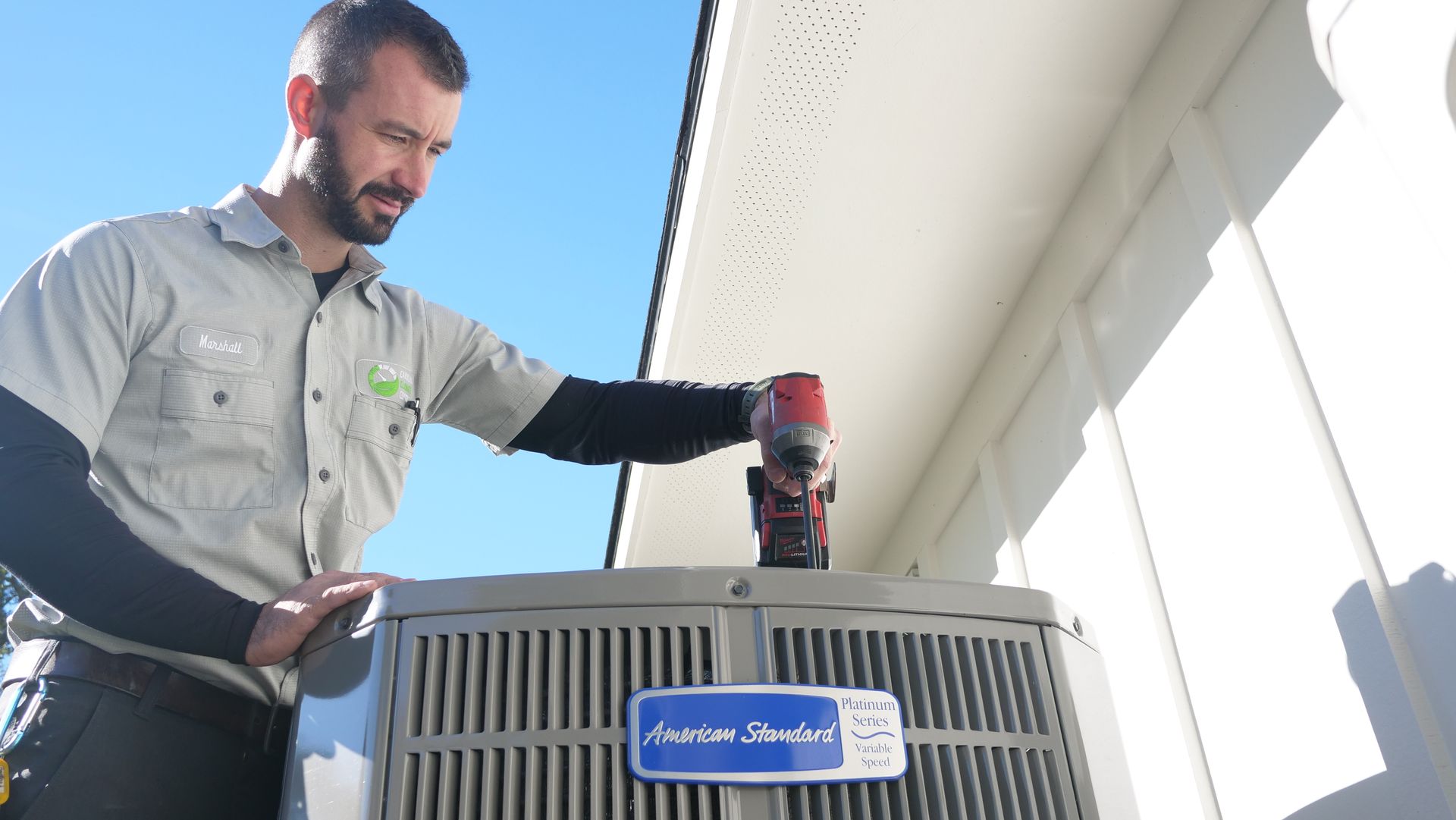
As the warm, humid days return to Charleston, SC, your air conditioner becomes one of the most important systems in your home. But what if it’s not working as well as it used to? If you're noticing higher energy bills, uneven cooling, or strange noises coming from your AC, you might be asking yourself: Should I repair or replace my old air conditioner this spring? At Carolina Climate Control, we help Lowcountry homeowners make smart, informed decisions about their cooling systems. Here’s how to know which option is right for you. When a Repair Makes Sense Sometimes, your AC just needs a little attention to get back to peak performance. Consider scheduling a repair if: The system is less than 10 years old and has been well-maintained. This is the first time you've had an issue in a while. The repair is minor, such as a faulty capacitor, dirty coils, or a clogged filter. Your energy bills haven't drastically increased and your home still cools evenly. Repairs are often a cost-effective way to extend the life of your system—especially when caught early with a routine spring tune-up. Signs It’s Time to Replace Your AC Unit While repairs can fix many problems, they may not be worth it in the long run if your system is outdated or constantly struggling to keep up. Here are key signs it may be time for a replacement: Your unit is 10–15 years old or older. You’re paying for frequent or costly repairs. Your home isn’t cooling consistently, even after maintenance. You hear loud or unusual noises coming from your unit. Your energy bills keep climbing, even though your usage hasn’t changed. Newer air conditioning systems are significantly more energy-efficient than older models, which means you could see immediate savings on your monthly energy bills. Benefits of Replacing Your AC in the Spring Spring is the ideal time to replace your air conditioning unit in Charleston. Here’s why: Avoid the summer rush – HVAC companies get booked quickly once the heat kicks in. Take advantage of early-season promotions and manufacturer rebates. Enjoy consistent comfort before the humidity peaks in July and August. Increase energy efficiency before summer bills arrive. At Carolina Climate Control, we offer energy-efficient systems that are tailored to Charleston’s unique climate—helping you stay cool while saving money. Need Help Deciding? We’ve Got You Covered. If you're still unsure whether to repair or replace your AC, our experienced technicians at Carolina Climate Control can help. We’ll perform a detailed inspection, give you honest recommendations, and guide you through your options without pressure. We proudly serve Charleston, Mount Pleasant, Summerville, and surrounding Lowcountry areas with fast, reliable service that keeps your comfort front and center. Schedule Your AC Assessment Today Don’t wait for your AC to quit during the peak of summer. Contact Carolina Climate Control today to schedule your spring inspection. Whether it’s a simple repair or a brand-new system, we’ll make sure your home stays cool and comfortable all season long. Stay cool with the Lowcountry’s most trusted HVAC team—Carolina Climate Control. To learn more about how we can keep your home cool and comfortable this spring and summer, check out our services page today!
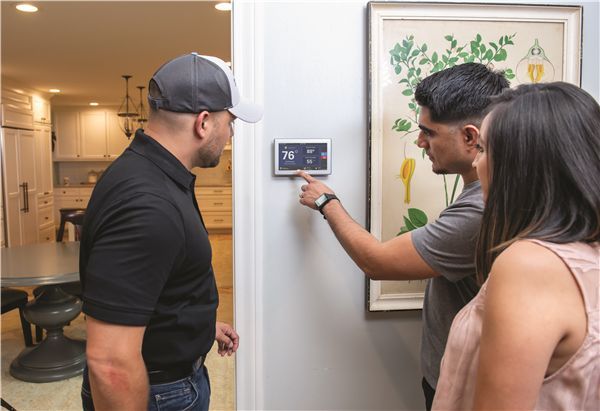
Spring is the perfect time to make home upgrades that improve comfort and energy efficiency. One of the best investments you can make this season is upgrading to a smart thermostat. If you’re still using a traditional thermostat, you might be missing out on significant savings and convenience. Let’s explore why a smart thermostat could be the perfect addition to your Charleston home this spring. Benefits of a Smart Thermostat 1. Energy Savings & Lower Utility Bills A smart thermostat learns your household’s schedule and adjusts the temperature accordingly, helping you use less energy when you're away. Many models provide energy usage reports, giving you insights on how to optimize your heating and cooling settings for even greater savings. 2. Remote Access & Control With Wi-Fi connectivity, smart thermostats allow you to control your HVAC system from anywhere using your smartphone. Whether you're at work, on vacation, or just relaxing in another room, you can adjust the temperature with a simple tap on your phone. 3. Enhanced Comfort & Automation Smart thermostats ensure your home is always at the perfect temperature when you need it. Features like geofencing can detect when you’re on your way home and adjust the temperature accordingly. Some models even integrate with voice assistants like Alexa or Google Assistant for hands-free control. 4. Compatibility with Charleston’s Climate Spring in Charleston brings fluctuating temperatures, making it challenging to maintain consistent indoor comfort. A smart thermostat can automatically adjust settings based on weather conditions, keeping your home cool during sudden warm days and comfortable during cooler nights. 5. Easy Installation & Long-Term Value Most smart thermostats are easy to install and can be programmed in minutes. They are a long-term investment that not only saves you money on energy bills but can also increase your home’s resale value. Is a Smart Thermostat Right for Your Home? If you’re looking for a way to improve your home’s efficiency and comfort, a smart thermostat is a great choice. Homeowners in Charleston can benefit from the energy-saving features and advanced technology that these devices offer, especially as we transition into the warmer months. At Carolina Climate Control, we can help you choose the best smart thermostat for your needs and ensure a seamless installation. Contact us today to learn more about upgrading your thermostat and taking control of your home’s comfort this spring! Check out our thermostat product page to learn more about some of the smart, energy-efficient thermostats we carry an install here at Carolina Climate Control in Charleston, SC. Call Carolina Climate Control today to schedule your smart thermostat installation!
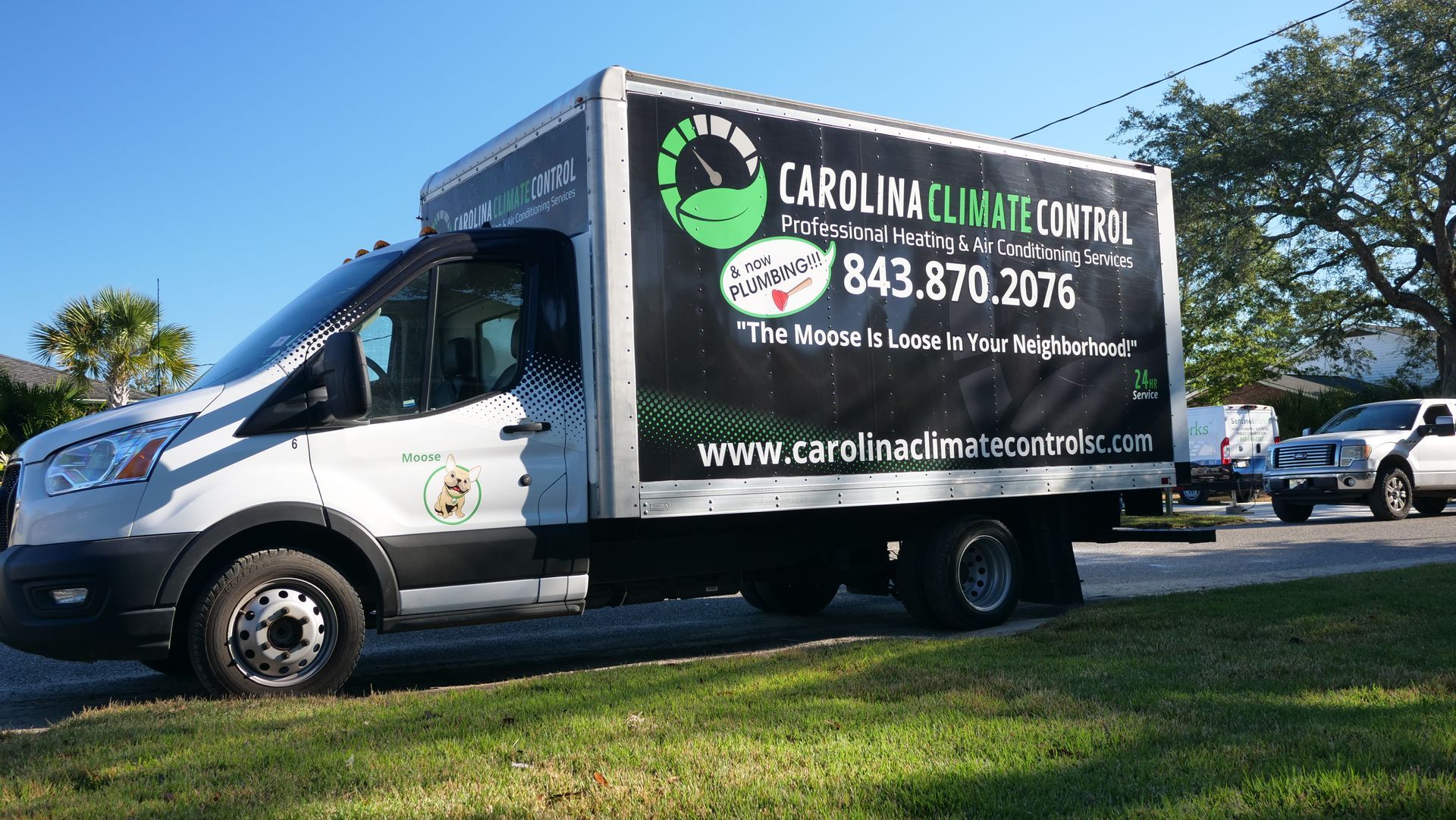
As the temperatures begin to rise in Charleston, SC, now is the perfect time to schedule your spring HVAC tune-up. While your air conditioning system may have been idle during the cooler months, it will soon be working overtime to keep your home comfortable during the hot and humid Lowcountry summer. A professional HVAC maintenance check ensures your system is running efficiently, prevents costly repairs, and helps improve indoor air quality. Why Spring HVAC Maintenance Matters Optimize Efficiency & Lower Energy Bills A well-maintained HVAC system operates more efficiently, which means it uses less energy to keep your home cool. Cleaning coils, changing filters, and checking refrigerant levels can prevent your system from overworking and help keep your energy bills in check. Prevent Unexpected Breakdowns Nothing is worse than turning on your AC on a scorching Charleston afternoon only to find it’s not working. Regular maintenance allows HVAC professionals to catch potential issues early before they turn into costly breakdowns. Extend the Lifespan of Your System Your HVAC system is a significant investment, and regular tune-ups can help extend its lifespan. By addressing minor issues before they escalate, you can avoid premature replacements and keep your system running smoothly for years to come. Improve Indoor Air Quality Spring maintenance includes cleaning or replacing air filters, which helps remove dust, allergens, and pollutants from the air. This is especially important for Charleston homeowners who suffer from seasonal allergies. Ensure Comfort for the Warmer Months Charleston’s hot and humid climate demands a reliable air conditioning system. A spring tune-up guarantees that your HVAC unit is ready to handle the summer heat, keeping you and your family comfortable. What’s Included in a Spring HVAC Tune-Up? At Carolina Climate Control, our comprehensive HVAC maintenance service includes: Checking and tightening electrical connections Inspecting and cleaning coils Checking refrigerant levels Lubricating moving parts Inspecting and replacing air filters Testing the thermostat for accuracy Examining the overall system performance Schedule Your HVAC Tune-Up Today! Don’t wait until the peak of summer to discover an issue with your air conditioning system. Scheduling your spring HVAC tune-up now ensures peace of mind, lower energy costs, and a comfortable home all season long. Carolina Climate Control is here to help Charleston homeowners prepare for the warm months ahead. Contact us today to schedule your spring HVAC maintenance and keep your cooling system in top shape! To learn more about our professional HVAC maintenance service, check out our maintenance service page !
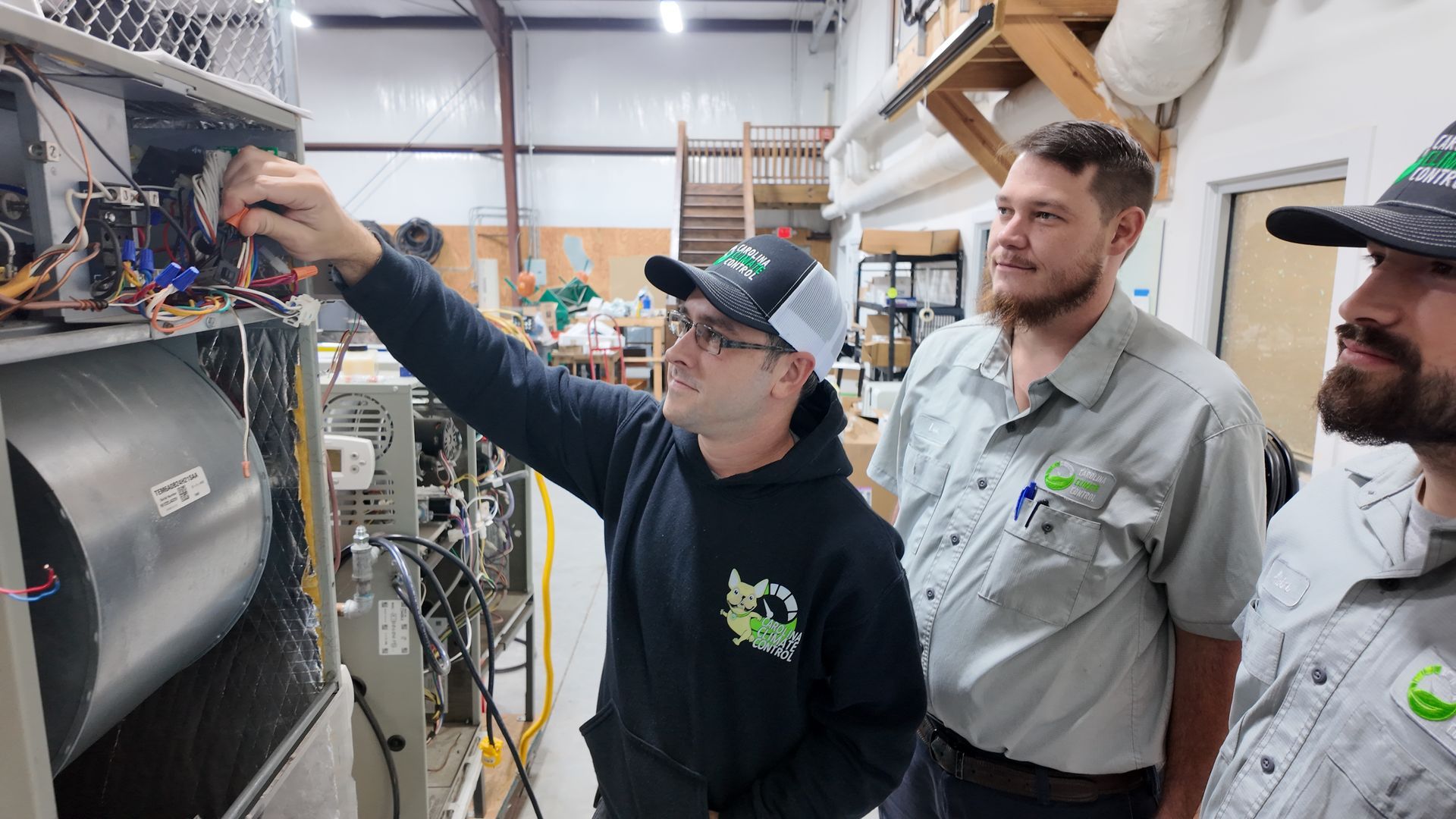
As the winter season approaches in Charleston, South Carolina, it’s time to ensure your HVAC system is ready to keep your home warm and comfortable. While winters here are generally mild, the occasional cold snap can put your heating system to the test. At Carolina Climate Control, we want to help you prepare your HVAC system for the season ahead with these essential tips. 1. Schedule a Professional Maintenance Check Before winter fully sets in, schedule a maintenance visit with our experienced technicians. Regular maintenance helps identify potential issues before they become costly repairs. During the checkup, we’ll inspect your system, clean components, and ensure everything is operating efficiently. 2. Replace or Clean Your Air Filters Clean air filters are vital for efficient HVAC performance. Dirty filters can restrict airflow, forcing your system to work harder and increasing energy costs. Replace or clean your filters monthly, especially during periods of heavy use. 3. Test Your Thermostat Ensure your thermostat is working properly and set to your desired temperature. If you’re still using a manual thermostat, consider upgrading to a programmable or smart thermostat for better temperature control and energy savings. 4. Inspect Your Ductwork Leaky or poorly insulated ductwork can lead to significant heat loss, making it harder for your HVAC system to maintain a consistent temperature. A professional inspection can identify and seal any leaks, ensuring your system operates efficiently. 5. Check Your Insulation Good insulation keeps warm air inside and cold air out. Inspect your home’s insulation, especially in the attic and around windows and doors. Adding weather stripping or caulking can make a big difference in maintaining indoor comfort. 6. Clear the Area Around Your HVAC System Make sure your outdoor unit is free of debris such as leaves, dirt, and branches. A clean unit operates more efficiently and is less likely to experience issues during the colder months. 7. Be Prepared for Emergencies Charleston winters can bring unexpected weather changes. Make sure you have a plan in place for power outages and other emergencies. Keep blankets, portable heaters, and emergency contact numbers on hand, including our 24/7 service line for urgent HVAC repairs. 8. Consider Upgrading Your System If your HVAC system is more than 10-15 years old, it might be time to consider an upgrade. Modern systems are more energy-efficient and reliable, ensuring your home stays comfortable while lowering your utility bills. To learn more about some of the energy-efficient products we carry and install, check out some of our product pages . Trust Carolina Climate Control to Keep You Comfortable This Winter Preparing your HVAC system for winter doesn’t have to be stressful. Carolina Climate Control is here to help with expert maintenance, repairs, and installations tailored to Charleston’s unique climate. Contact us today to schedule your winter HVAC checkup and enjoy a warm, worry-free season.
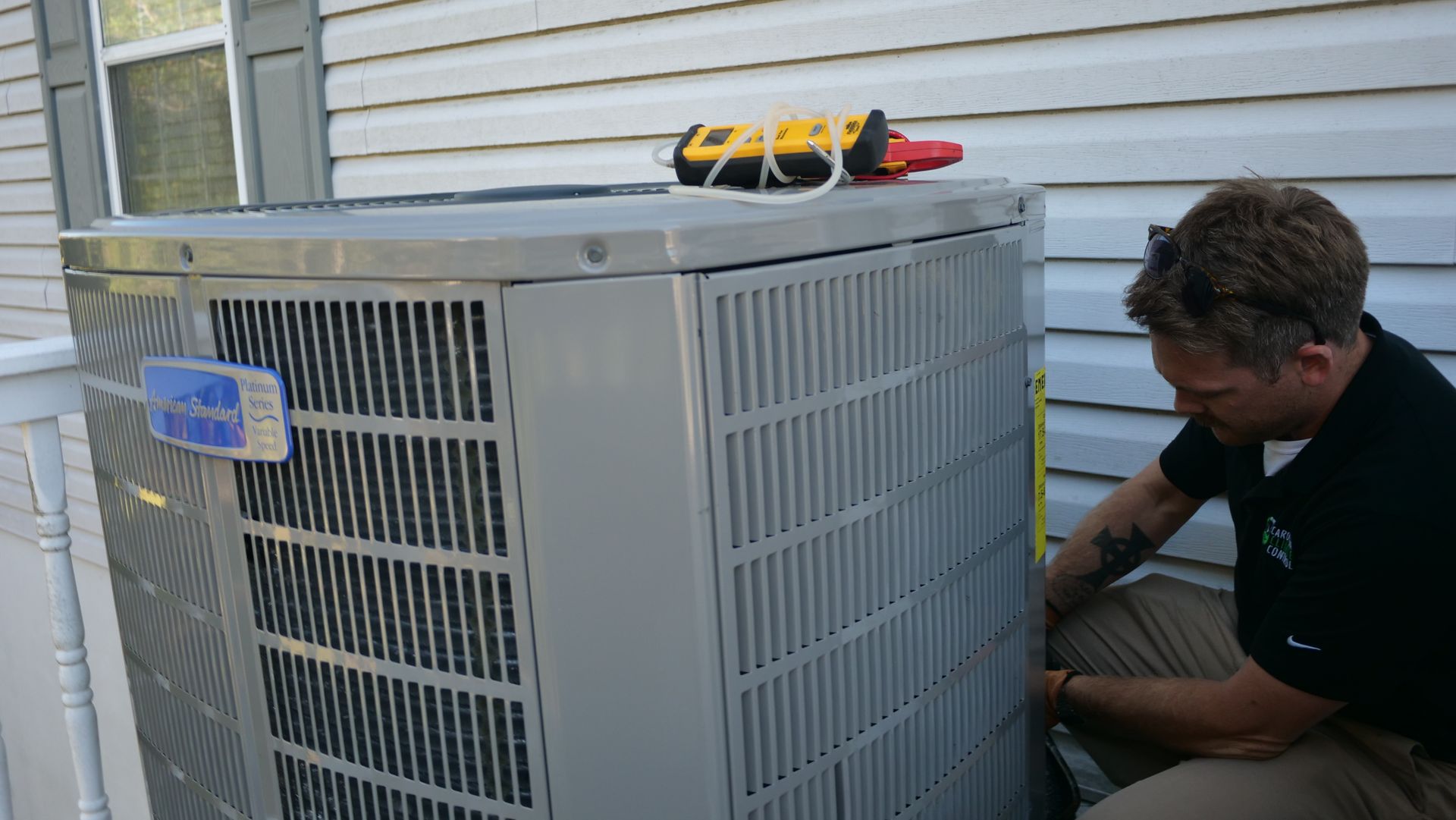
As the cooler months approach, Charleston homeowners are beginning to think about how to keep their homes warm and cozy without breaking the bank on energy bills. With a variety of energy-efficient heating options available today, it’s easier than ever to find a system that balances comfort and cost savings. At Carolina Climate Control, we’re here to help you explore the best solutions for your home this winter. 1. Heat Pumps: A Year-Round Solution Heat pumps are one of the most efficient heating options for Charleston’s mild winters. These systems work by transferring heat from the outside air into your home, using less energy compared to traditional heating methods. Many modern heat pumps also double as air conditioners, making them an excellent year-round investment. If you’re considering a heat pump, look for models with a high Heating Seasonal Performance Factor (HSPF) for maximum efficiency. And if you already have a heat pump, regular maintenance ensures it operates at peak performance. 2. Ductless Mini-Split Systems For homes without ductwork or those looking to heat specific areas, ductless mini-split systems are a fantastic choice. These systems allow for zoned heating, meaning you can heat only the rooms you’re using, reducing energy waste. They’re also quiet, compact, and highly efficient, making them a popular option for Charleston homeowners. 3. High-Efficiency Furnaces If you prefer a traditional furnace, upgrading to a high-efficiency model can make a significant difference in energy savings. Modern furnaces with an Annual Fuel Utilization Efficiency (AFUE) rating of 90% or higher convert most of the fuel they consume into heat, minimizing waste. Pairing your furnace with a programmable or smart thermostat can further enhance efficiency by allowing you to set heating schedules and avoid heating your home when no one is there. 4. Radiant Floor Heating While not as common, radiant floor heating is a luxurious and efficient way to keep your home warm. This system uses electric heating coils or water-heated tubing beneath your floors to provide even, consistent heat throughout a room. It’s especially appealing for homes with tile or hardwood flooring. Tips for Maximizing Efficiency Regardless of the heating system you choose, there are simple steps you can take to make your home more energy-efficient this winter: Seal Drafts: Check for air leaks around windows and doors and seal them with weatherstripping or caulk. Insulate: Proper insulation in your attic and walls helps retain heat. Maintain Your System: Schedule regular maintenance with Carolina Climate Control to ensure your heating system runs efficiently all season long. Find the Right Solution with Carolina Climate Control Choosing the best heating option for your Charleston home depends on your budget, home size, and personal preferences. At Carolina Climate Control, we specialize in helping homeowners find energy-efficient solutions that keep their homes comfortable and their energy bills manageable. This winter, don’t let high heating costs dampen your holiday spirit. Get in touch with us today to discover our energy-efficient heating solutions and schedule a consultation with our expert team. For more information on the energy-efficient heating equipment we offer and install, visit our products page . Stay warm, Charleston!
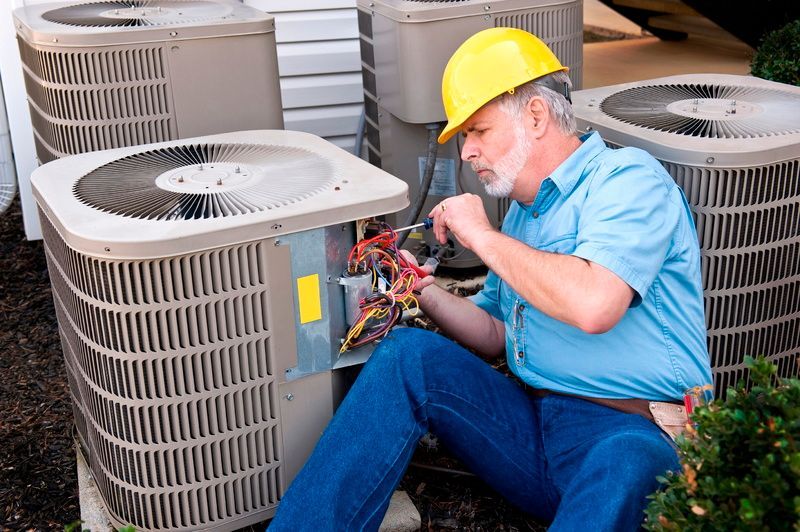
As spring arrives, it’s time to consider essential maintenance tasks for your HVAC system. Springtime HVAC maintenance in Charleston, SC, is crucial for ensuring maximum comfort, preventing breakdowns, and extending the lifespan of your equipment. Let’s look at the importance of HVAC maintenance in the spring. Importance of HVAC Maintenance in the Spring Preventive Care: […]
The post Spring Means It’s Time to Schedule HVAC Maintenance first appeared on Carolina Climate Control.
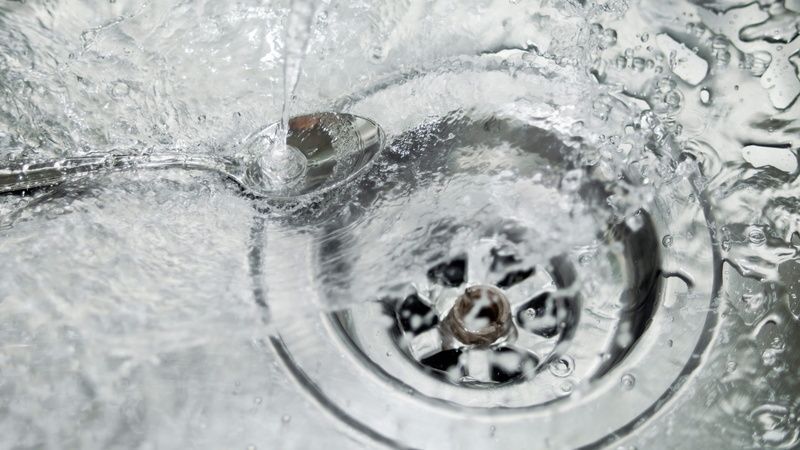
Clogged drains are among the most common plumbing problems. We’ve all had to deal with a kitchen sink that won’t drain or a shower that leaves a pool of water around our feet. In some cases, removing clogs is something you can do on your own if you have the right tools. We’re going to […]
The post Got a Clogged Drain? What to Try—And What NOT to Try first appeared on Carolina Climate Control.




